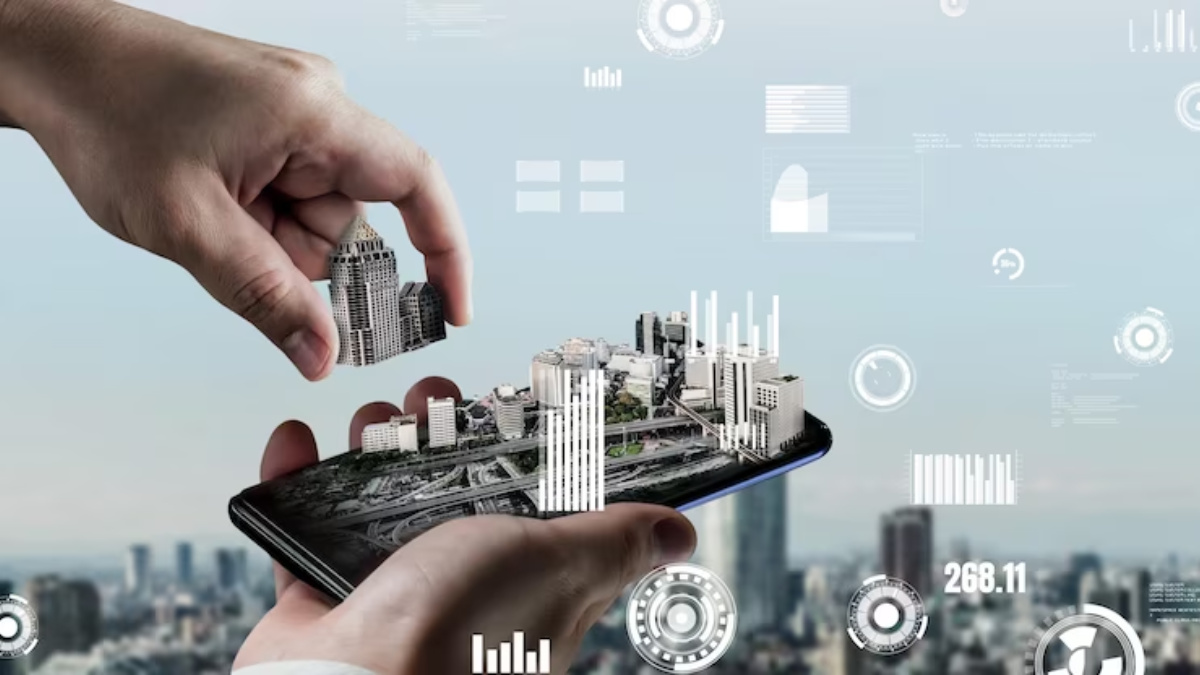Did you know?
The real estate market is a major component of the world’s economy, with a global value of over $7 trillion.
That’s huge, right?
With the use of technology and new trends, the real estate sector has seen a considerable revolution. Technology lets real estate agents/brokers and realtors manage leads, automate procedures, and develop individualized experiences. Also, as we know, online platforms have increased the reach of real estate enterprises by creating new channels for interacting with prospective buyers and sellers. For example, you can check out Homesfy.in
But, in some ways, real estate has lagged behind other economic sectors in adopting trends and technologies. As a realtor, estate broker, or agent, you must know real estate trends to stay ahead of your competition. So, tighten your seatbelts; we are ready to take off to 6 surprising real estate trends every smart realtor should know about.
Conversational AI in Real Estate Brokerage

Realtors who use conversational AI claim to have the finest experience and service to the client, with significant advancements in real estate in 2023.
Conversational AI can help real estate brokerage by enhancing customer interactions, automating tasks, and providing personalized assistance. Here are some ways conversational AI can be used in the real estate brokerage industry:
- Lead Generation
- Virtual Tours and Visualizations
- Financing Assistance
- Customer Support
- Market Insights and Analytics
It’s important to note that while conversational AI can automate certain aspects of real estate brokerage, it should not replace the human touch entirely. Real estate transactions often involve emotional decisions, complex negotiations, and legal considerations.
Therefore, real estate agents are still crucial for building trust, providing personalized advice, and handling intricate situations. Conversational AI should be seen as a tool to enhance the overall customer experience and improve operational efficiency in the real estate brokerage industry.
Blockchain Technology for Real Estate Business

Blockchain technology offers several potential benefits for the real estate business, including increased transparency, enhanced security, improved efficiency, and reduced costs. Here are some ways in which blockchain can be applied in the real estate industry:
◾Smart Contracts
Blockchain enables smart contracts and self-executing agreements with predefined terms & conditions. Real estate transactions like property transfers, rental contracts, and lease payments can all be automated using smart contracts.
◾Title and Ownership Records
Blockchain can provide a decentralized and immutable ledger for recording property titles and ownership records. This helps establish a transparent and auditable history of property transactions, reducing the risk of fraudulent activities and disputes.
◾Tokenization of Real Estate Assets
Blockchain enables the tokenization of real estate assets, where a property’s value is divided into digital tokens that can be bought, sold, and traded. Tokenization allows fractional ownership, making real estate investments more accessible to a broader range of investors.
◾Secure and Efficient Payments
Blockchain-based platforms can facilitate secure and efficient real estate transactions by enabling instant and low-cost payments using cryptocurrencies or stablecoins.
◾Streamlined Property Due Diligence
Blockchain can streamline due diligence by providing a secure and transparent platform for verifying property information. Property details, such as construction history, permits, tax records, and liens, can be stored on the blockchain, allowing interested parties to access and verify the information efficiently.
◾Real Estate Crowdfunding
Blockchain technology can facilitate real estate crowdfunding by providing a secure and transparent platform for investors and project developers. Blockchain-based crowdfunding platforms can connect investors with real estate projects, enable fractional ownership, and automate the distribution of returns.
Mobile Apps in Real Estate

Mobile apps have become an essential tool for the real estate industry, offering a range of features and functionalities that enhance the property search and transaction process. Whether searching for properties, accessing market information, or managing transactions, mobile apps provide convenience and accessibility to users, empowering them to make informed decisions in real estate. Here are some ways mobile apps are used in real estate:
- Property Search
- Notifications and Alerts
- Financial Tools
- Virtual Tours and 3D Visualizations
- Collaboration and Communication
- Transaction Management
- Market Trends and Insights
To see all these features in one place, download the mymagnet.io app now!
Virtual Reality and Augmented Reality

Virtual Reality (VR) and Augmented Reality (AR) have significantly transformed the real estate industry by revolutionizing property showcasing and enhancing the buying and selling process. Here’s how VR and AR are utilized in real estate:
- Virtual Property Tours
- 3D Property Visualizations
- Design and Renovation Visualization
- Virtual Staging
- Interactive Property Information
- Remote Collaboration and Consultation
- Marketing and Advertising
For detailed information on this, you can give a read to our blog on Real Estate Marketing Through Virtual Tools.
Internet of Things (IoT) Real Estate Brokerage

The Internet of Things (IoT) has the potential to offer increased connectivity, automation, and data-driven insights. Here are some ways IoT can benefit real estate brokers significantly and enhance the overall customer experience:
◾Smart Home Integration
IoT enables the integration of smart devices and sensors within properties, creating smart homes. Real estate brokers can showcase properties with IoT features, highlighting the convenience, energy efficiency, and enhanced security they provide. Smart home technology can be a selling point and add value to properties.
◾Real-Time Property Monitoring
IoT sensors can be installed in properties to monitor various parameters such as temperature, humidity, air quality, and energy consumption. Real estate brokers can access real-time data from these sensors to provide insights to potential buyers.
◾Remote Property Management
IoT devices and platforms can enable remote property management for real estate brokers. With connected devices and sensors, brokers can monitor and manage properties remotely, addressing maintenance issues, security concerns, and energy management.
◾Predictive Maintenance
IoT sensors can provide data on the condition and performance of property systems, such as HVAC, plumbing, and electrical systems. Real estate brokers can leverage this data to implement predictive maintenance strategies. By monitoring equipment and detecting anomalies in real time, brokers can schedule maintenance and repairs proactively, reducing downtime and improving property value.
◾Enhanced Security
IoT-based security systems can provide advanced property monitoring and surveillance. Real estate brokers can offer properties with IoT-enabled security cameras, motion sensors, and alarm systems.
◾Data-Driven Insights
IoT devices generate vast data that can be leveraged to gain insights into property usage, occupancy patterns, and energy consumption. Real estate brokers can analyze this data to provide valuable information to clients, such as optimizing space utilization, identifying energy-saving opportunities, and understanding clients’ behaviours.
◾Personalized Property Experiences
IoT devices and data can enable personalized property experiences for potential buyers. For example, brokers can use IoT-based beacons or mobile apps to provide customized property tours, showcasing relevant information and features based on individual preferences.
Conclusion
As the real estate industry evolves, we expect further innovations and advancements that will streamline processes, increase efficiency, and foster trust and transparency. By leveraging technology and embracing these hidden trends, savvy agents and brokers can navigate the evolving landscape and stay ahead of the curve, delivering exceptional value and experiences to their clients.
The future of real estate is tech-driven, and those who embrace these cool, hidden trends will undoubtedly reap the benefits of a dynamic and thriving industry. It’s an exciting time for the real estate world, and by staying informed and adaptable, real estate professionals can seize the opportunities presented by these emerging technologies and shape the industry’s future.
As a realtor, it’s crucial to be aware of real estate trends in order to provide quality service to your clients. The real estate market is constantly evolving, and realtors need to be mindful of trending technologies to remain competitive.
To stay ahead of the curve, be our Magnet Partner today. Click Here!
